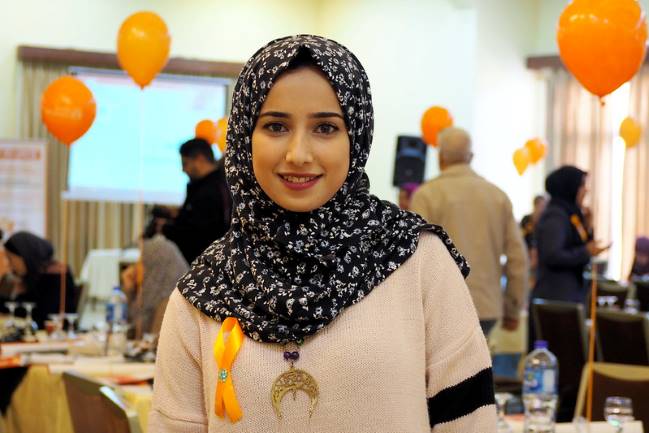Haya Joint Programme Reduces Violence Against Women in Palestine
 The Haya Joint Programme, in partnership with United Nations efforts, is working to reduce violence against women in the West Bank and Gaza Strip. A vital resource protecting women and girls, the program works toward achieving gender equality for generations to come.
The Haya Joint Programme, in partnership with United Nations efforts, is working to reduce violence against women in the West Bank and Gaza Strip. A vital resource protecting women and girls, the program works toward achieving gender equality for generations to come.
Program Background
The Haya Joint Programme is a Palestinian human rights program aimed at ending violence against women through education and intervention. The government of Canada funds the initiative, which works with a variety of United Nations organizations, such as U.N. Women, U.N. Office on Drugs and Crime and the U.N. Population Fund. The Haya Joint Programme also works with Palestinian law enforcement and government agencies to implement efforts at local levels.
The program seeks to change existing attitudes about gender violence through community education. It accomplishes this by teaching educators intervention techniques for those facing domestic violence. Furthermore, the program pushes for essential legislative change to provide further legal protection for women.
Forensic Training for Gender Violence Justice
The Palestinian Central Bureau of Statistics reports that an overwhelming number of women have experienced violence by a partner. This emotional and physical hardship has directly affected more than half of all women in the Gaza Strip and 30% of women who have ever married in the West Bank. Only 1% ever reported these events to law enforcement.
In a press release on January 5, 2021, U.N. Women announced its collaboration with the Haya Joint Programme. The announcement indicated a plan to increase forensic science training at the West Bank’s only forensic lab for cases of domestic violence. Training includes instruction of lab equipment, preserving crime scene evidence and forming opinion evidence on behalf of gender violence survivors. In the last year alone, the lab assisted with presenting forensic evidence to the court for 1,690 cases.
Moreover, this training aids in the identification and prosecution of perpetrators in cases of sexual assault and homicide. Police, crime scene and family protection officers also received training for handling and preserving crime scenes through this program.
Training for Teacher Intervention
Another crucial aspect of the Haya Joint Programme is to increase education and awareness surrounding gender and domestic violence. The program conducts training courses for teachers on topics related to intervention and legal rights for women and girls in Palestine.
In the last year, the Palestinian Centre for Human Rights held multiple training sessions with the Haya Joint Programme for educators teaching in United Nations Relief and Works Agency (UNRWA) schools in the Gaza Strip. The training sessions include lessons on how teachers can recognize gender violence among students and provide counseling and other resource referrals to those who need it. Teachers also learn about women’s legal rights in instances of violence and the courses of legal action to take.
The program has had to adapt to COVID-19 precautions in the last year but conducted its training sessions via Zoom during November and December. These sessions were still widely attended by 129 teachers and females accounted for 103 attendees.
A Global Issue
The Haya Joint Programme notes that these efforts to diminish violence against women are in alignment with the United Nations Sustainable Development Goals for 2030. Goal 5 is to reach gender equality by working to increase women’s education, increasing the number of women in government positions and reducing domestic violence.
With one in five women experiencing intimate partner violence every year, initiatives like the Haya Joint Programme are essential. Fortunately, the program is attempting to reduce the prevalence of these offenses by supporting women and girls in obtaining justice. The Haya Joint Programme focuses on core problems by working directly on factors like securing legal rights and changing attitudes. As its efforts are paramount to Palestine’s prosperity, the program looks toward a successful future.
– June Noyes
Photo: Flickr
